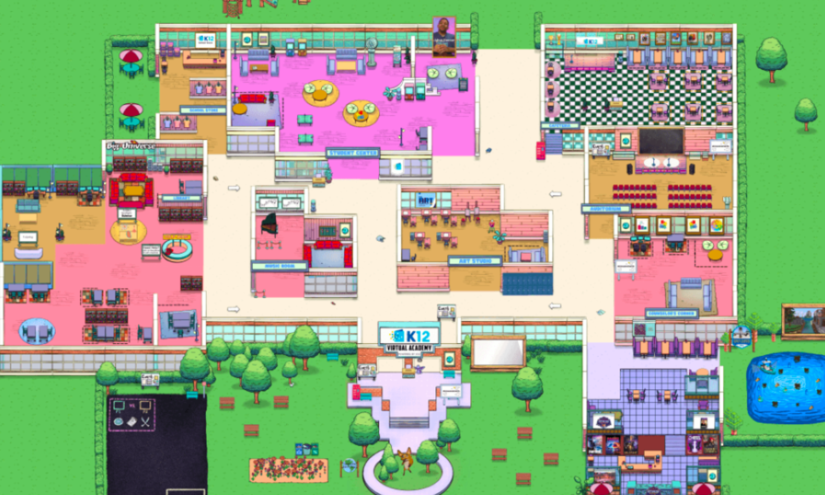During this summer, a team of students from MIT embarked on a journey to the sou …
Surge in Online Schooling for Washington’s Youngest Students
Carlos Changemaker

Most families with young children, if asked whether they would choose virtual schooling again after experiencing online classes during the pandemic, would likely say “never again,” according to a Harvard study. However, for Lia Carlile and her four kids, virtual schooling is not hypothetical – it’s a deliberate choice.
Recently, 7-year-old Samuel Carlile, Lia’s youngest child, had the opportunity to meet his first-grade classmates in person during a field trip to the zoo. His older sister, 16-year-old Caroline Carlile, shared with excitement how Samuel came home bursting with excitement about meeting his classmates.
“He was like, ‘oh my gosh, I got to meet so and so, and we had such a great time,'” Caroline said.
Caroline, who attends Insight School of Washington, an online school through the Quillayute Valley School District, expressed amazement at the strong sense of community that virtual teachers have been able to foster with students who have never met face to face. Although the Carlile family lives in Curlew, a small community in eastern Washington near the Canadian border, the virtual school brings together students from various locations.
Lia Carlile, who previously taught at a brick-and-mortar school, made the switch to teaching math and science at Washington Virtual Academies, where her three kids, including Samuel, attend. She now serves as the assistant principal at the school. For her, virtual education offers a “really good compromise” between homeschooling and public school.
“I get a job that I love and the kids go to a school they love,” Carlile said.
Despite the rise in online schooling in Washington and other parts of the country, some experts remain skeptical about the benefits of virtual learning, especially for young learners. Data also indicate that virtual schools may not adequately prepare students for college or post-high school education.
While standalone K-12 online schools have existed for years, their popularity surged during the pandemic. In recent years, districts have expanded their online program offerings, even as COVID-19 cases declined.
According to the Office of Superintendent of Public Instruction, Washington state currently has 267 approved online schools. Some of these schools are run by for-profit companies, while others are publicly managed. Among them, four schools offer virtual learning for preschoolers and 140 serve elementary school students.
Parents often choose online learning for their young children to gain more flexibility, prevent bullying, or remove barriers for kids with disabilities or mental health issues. Elementary school parents, in particular, prefer online schools because they provide greater control over their child’s education.
Flexibility was a necessity for the Carlile family due to their travel plans and scattered family. They found online school as a perfect solution.
Here to stay
Prior to the pandemic, around 2,500 kindergarten to fifth grade students in Washington were enrolled in at least one online class each year. However, during the 2021-2022 school year, the number of students taking online classes more than tripled to 7,726, according to state reports. Out of that figure, over 2,000 kindergarteners and first-graders were enrolled in at least one online class, serving as a testament to the growing popularity of virtual learning. It’s worth noting that there are approximately one million K-12 students in Washington state.
Data on the number of students who remained in online schools for the 2022-2023 school year is not yet available. However, administrators at Insight School of Washington and Washington Virtual Academies, two of the largest online schools in the state, reported that enrollment has started returning to pre-pandemic levels.
According to a report by the Office of Superintendent of Public Instruction, 48 new single-district online school programs and seven multi-district online school programs were approved during the 2021-2022 school year. Around 33 of these new programs specifically targeted elementary-aged students. Online learning continues to grow as an enrollment option in Washington, and it will continue to be an important element of public education.
Insight School of Washington, one of the largest online schools, expanded its offerings to include elementary and middle school levels during the pandemic. Administrators plan to maintain these expanded grade levels moving forward.
“Online education may have gotten a bit of a bad rap through the pandemic because so many districts were trying to rush into that process,” said Jillian Ralston, an academic counselor at Insight School. “But what we have is something that’s been around for a long time.”
“We know how to support these students,” Ralston added.


